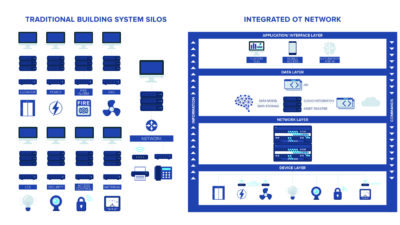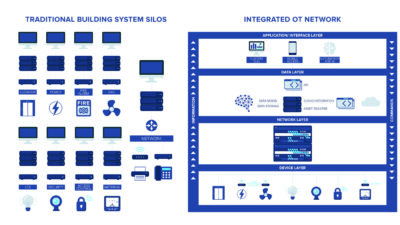Rebecca Ellis is a nationally recognized leader in the commissioning industry and specializes in the design, analysis, and commissioning of intricate temperature and humidity control systems.

Who: Rebecca Ellis, PE, LEED AP BD+C, CCP, CPMP, CxA
What: President, Questions and Solutions Engineering
Where: Chaska, Minn.
About: Ellis is a nationally recognized leader in the commissioning industry. She has helped define mainstream commissioning and retro-commissioning services and is a much sought after speaker, author, and trainer. She is a specialist in the design, analysis, and commissioning of intricate temperature and humidity control systems with a particular strength in direct digital controls.
Q: You founded your own engineering firm 6 years ago. What have been the biggest surprises?
A. How nasty our competition can be in trying to squash a very competent start-up.
Q: What is working well today in the commissioning industry? What would you change?
A. Building owners and operators are embracing commissioning best practices such as starting early in the design phase, engaging a third-party professional, and incorporating training and operations documentation into the process.
I would change the level of effort building owners put into selecting their commissioning professionals. First, I would like to see more owners educating themselves on all of the options available under the “commissioning” umbrella and customizing the right approach for their projects prior to soliciting commissioning services. Second, I would like to see more owners interviewing the potential commissioning providers prior to making a selection. Commissioning services is an “owner’s representative” role, and I think it is important for owners to meet with and approve of the people they choose to represent them prior to making that selection. Finally, I strongly recommend that building owners search out and talk with past clients of potential commissioning professionals in order to validate the success of past commissioning experiences.
Q: What tips would you give to a junior member of your team who wants to become an engineer and work in the commissioning industry?
A. Get out into buildings, mechanical/electrical rooms, and central utility plants with experienced system operators willing to share their knowledge and expertise. Most talented operations personnel are more than willing to explain their work and the systems they maintain to someone who is humbly and respectfully interested in learning. Go to college for the engineering fundamentals, and then see if you can intern somewhere that will get you into the trenches. And if you love buildings and believe making them better will change the world, then contact QSE for a job.
Q: What’s the most difficult aspect of your job, and how do you thrive in that environment?
A. The most challenging aspect of my job is resource management in a business where we have very little control over our own schedules. Commissioning schedules constantly change as project design and construction schedules change, so we need to be flexible with respect to who needs to work on what any particular week or day. With 50 to 75 active projects at any given time, this takes a lot of mental energy every day. I thrive in this environment because it is so gratifying the help orchestrate a team of talented professionals who can seamlessly and graciously change their plans and direction and help each other accommodate our clients.
Q: What aspect of engineering intrigues you most?
A. The process of taking an idea and converting it into concrete reality that serves a useful and appreciated function. With commissioning, the satisfaction of working with a system until it functions properly and serves the owner’s needs is very gratifying.
Q: What’s the key to balancing your professional and personal life?
A. I wish I knew. These two are never in balance, but that’s because both my professional and personal lives are constantly changing. The demands of my job change daily and sometimes unexpectedly, while my personal life is anything but static with a working husband and two adolescent children. We literally take it day-by-day, discussing the events of the upcoming day the evening before.
This question is especially interesting because of the significant overlap between my professional and personal lives. My husband manages the “business” side of QSE (technology, accounting, contracts, human resources, insurance, etc.). I am lucky to have someone I totally trust taking care of and innovating around those things so I can enjoy the engineering, project work, and mentoring more fully.
Q: What or who led you down your career path? Did you have a mentor?
A. I had lots of influences. First, my parents, who never hinted that my options might be limited. Second, my grandfather and two older brothers, all of whom were engineers. Third, my high school chemistry teacher, who recommended I participate in a women-only week at the University of Minnesota learning about the various types of engineering.
I have never had a formal mentor, but I chose my first job after graduate school based heavily on the fact that a senior associate of the firm was a woman. She was a great role model and source of inspiration, even after she left the firm six months after I joined it. Her position in the firm said a lot about the openness management had towards women engineers.
I have since tried to cultivate relationships with other women professionals in the design and construction industry. There are still an amazingly few number of us.
Q: What suggestions would you give to young women interested in engineering?
A. Go for it! Find your passion, study hard, and sell yourself unabashedly as a unique and extremely valuable asset to any business. Do not try to be a man in a man’s world; be a woman who can navigate a man’s world and, with the right opportunities, make it better.
Q: If you could speak to a younger version of yourself, what would you say?
A. Work for a firm with other women engineers, especially if women are in higher levels of management. Don’t be intimidated by anything or anyone. Expect the best from others. Don’t look for discrimination or harassment or it is likely to find you. Work hard; demonstrate through normal day-to-day activities that you are smarter and more professional than those who might put you down; and take advantage of opportunities to help change the world of engineering for the better.
Q: How would your coworkers or clients describe you?
A. Confident. Competent. Control freak. Reliable. Fair.
Q: What life adventure is still on your list?
A. I look forward to going back more fully to some of the things I enjoyed doing before career and family took precedence over personal leisure activities. Bicycling, cooking, knitting, and things I am afraid I can’t even remember at this point. I certainly don’t need any more “adventure,” as many days tend to present plenty of adventure as it is.
Q: What one word best describes you?
A. Industrious.
Q: When did you become a “grown-up”?
A. Intriguing question. If there is one watershed event, I guess it would have to be when my first child was born almost 15 years ago. However, I know it has been a series of steps and events.



